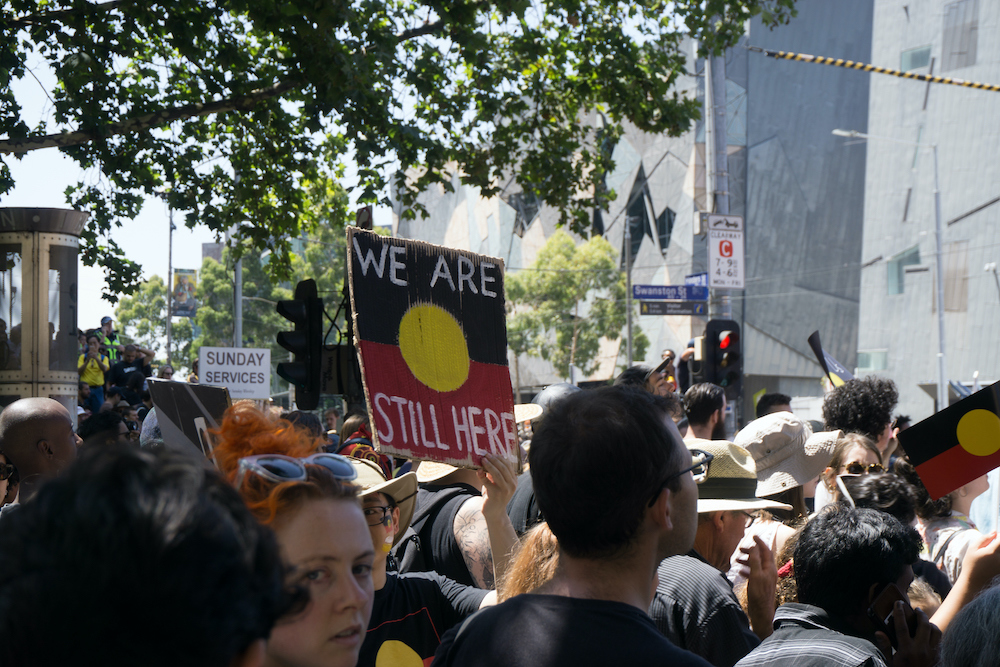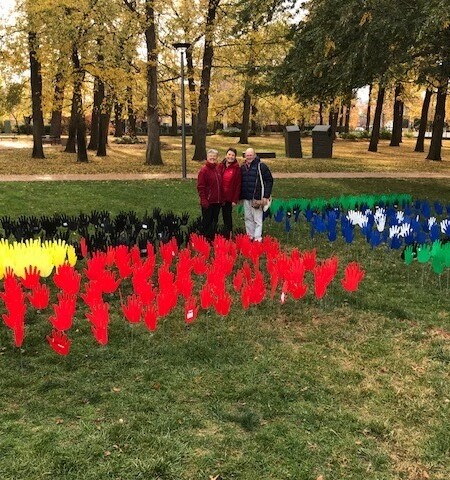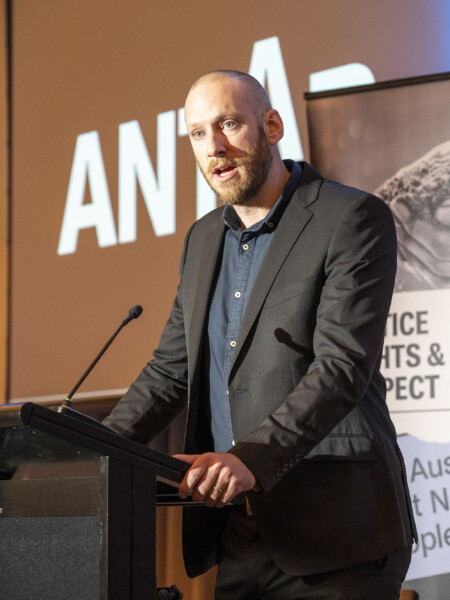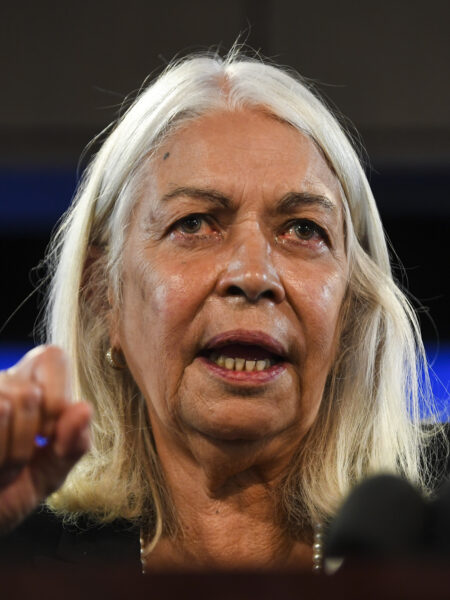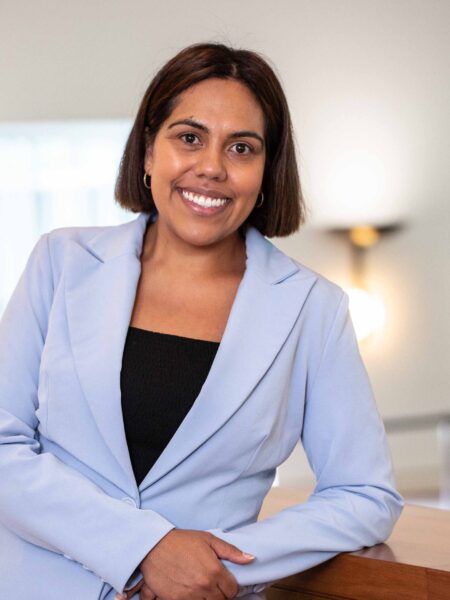The No campaign played on the deep biases they already knew sat within many Australians. They knew because, in the short period of time that our lands have been colonised, they have deliberately removed us from their version of history, diminishing the need for empathy.
You only need a basic understanding of the motives that underpin segregation, protection and assimilation policies that are still closer than they appear in the rear-view mirror of our political history. These policies have embedded biases within our nation that those who voted no will continue to deny, using lack of detail as a façade to validate their immunity to the very system that holds their strings and manoeuvres them with ease. We have seen these strategies for 235 years, and we will continue to see them again.
They will continue to try and beat us, but as we have continually shown, we won’t break.
___
The 2023 referendum loss leaves Australia as the only western nation with a colonial history that does not recognise its First Nations people in the Constitution. What should be clear from the outset is that the proposal for constitutional recognition has come from decades of calls and activism within First Nations communities. Data shows that constitutional recognition and a representative body was overwhelmingly supported by First Nations people before, during and after the referendum.
An unfair fight from the beginning, 97% of Australia’s population who are non-Indigenous were given the opportunity to move towards a more equitable future or maintain the status quo. It is worth noting here that the protection, segregation, and assimilation policy eras were practised until the mid-1960’s. Today, as a 23-year-old Noongar woman, I am aware that I live in a time where those who designed, implemented, and were influenced by these policies still live alongside our mob who survived these acts of cultural genocide and continue to have their firsthand experiences of these policies denied. In the wake of ‘reconciliation’ and an opportunity to give the word substance, the unconscious biases of Australians were put to the test, and they failed.
Thanks to National Indigenous Times Fact Check and RMIT ABC Fact Check, there were at least some concerted efforts to regulate the worst of the disinformation and fear mongering. However, with the unprecedented regurgitation of media articles, reports, and programs following Anthony Albanese’s speech announcing the referendum at Garma on 30th July 2022, the nation had access to perspectives from every possible angle, choosing the ones that aligned the closest to the beliefs they already held – or as others may call it, confirmation bias.
Unfortunately, those who demanded detail weren’t looking for it. Although it is not permissible to put the details of the Voice structure into the constitution, the Marcia Langton and Tom Calma, Indigenous Voice Co-design Process report to the Australian Government in 2021, outlined in great depth the consultation and engagement processes that would be required, as well as detailing how the local, regional, and national Voice structures would ensure that even those in the most remote areas could be represented. This document would have likely laid the foundation for further consultation in establishing the Voice. Now, it provides a bitter insight into what could have been possible, and what we have now been denied.
Voters on both sides of the referendum fell victim to the game of federal politics. The opposition party led by Peter Dutton fueled the No campaign alongside Jacinta Nampijinpa Price and Warren Mundine with disinformation in a desperate bid to gain support as so-called Australia shifts its focus from the failed Labor-driven referendum towards the next 2025 federal election.
In a cost-of-living crisis, voters were manipulated by fears of higher tax burdens, ignoring the reality of the continued use of taxpayer’s money on policies and programs that are not designed or implemented by First Nations people, and that have failed to deliver outcomes for our mob – in some cases taking us backwards. This is because First Nations people are not in a position to influence the way that an allocated budget should be used in our communities, on programs that have proven effective, as an act of self-determination. Constitutional recognition of First Nations peoples through the establishment of a Voice provided an opportunity to recognise the rights of First Nations people, improve the policies affecting us, and provide long-term economic benefits to the Australian economy.
The long campaign that preceded in support of constitutional recognition and the Voice was spearheaded by mob all around Australia. It is a testament to our resilience and strength in the face of adversity, and a reminder of the threat that our continued existence places on the settler colony as we continue to expose its rotting foundations. This will mark a pivoting point in our history that I believe is yet to be fully understood.
We should be conscious that just as our opinions differ, so too does the way in which we grieve. We should allow time and space for our mob to process this moment, even if it means our greatest leaders passing the baton to those channelling their grief through continued activism.
I want to finish by thanking our First Nations leaders and elders who poured their hearts, souls, blood, sweat, and tears into giving this referendum the best chance they could. As the floodgates of criticism and racism erupted, mob can hold their heads high knowing that they showed up for one another and extended that support to non-Indigenous Australians by tirelessly advocating and educating within our broader communities. Thank you to Rachel Perkins and Dean Parkin from the Yes23 Campaign, Megan Davis and Pat Anderson from the Uluru Statement from the Heart, as well as Thomas Mayo, Noel Pearson and many others. You have inspired a younger generation of leaders who draw strength from your unwavering dedication to fighting for a future where we feel seen, heard, and listened to.
